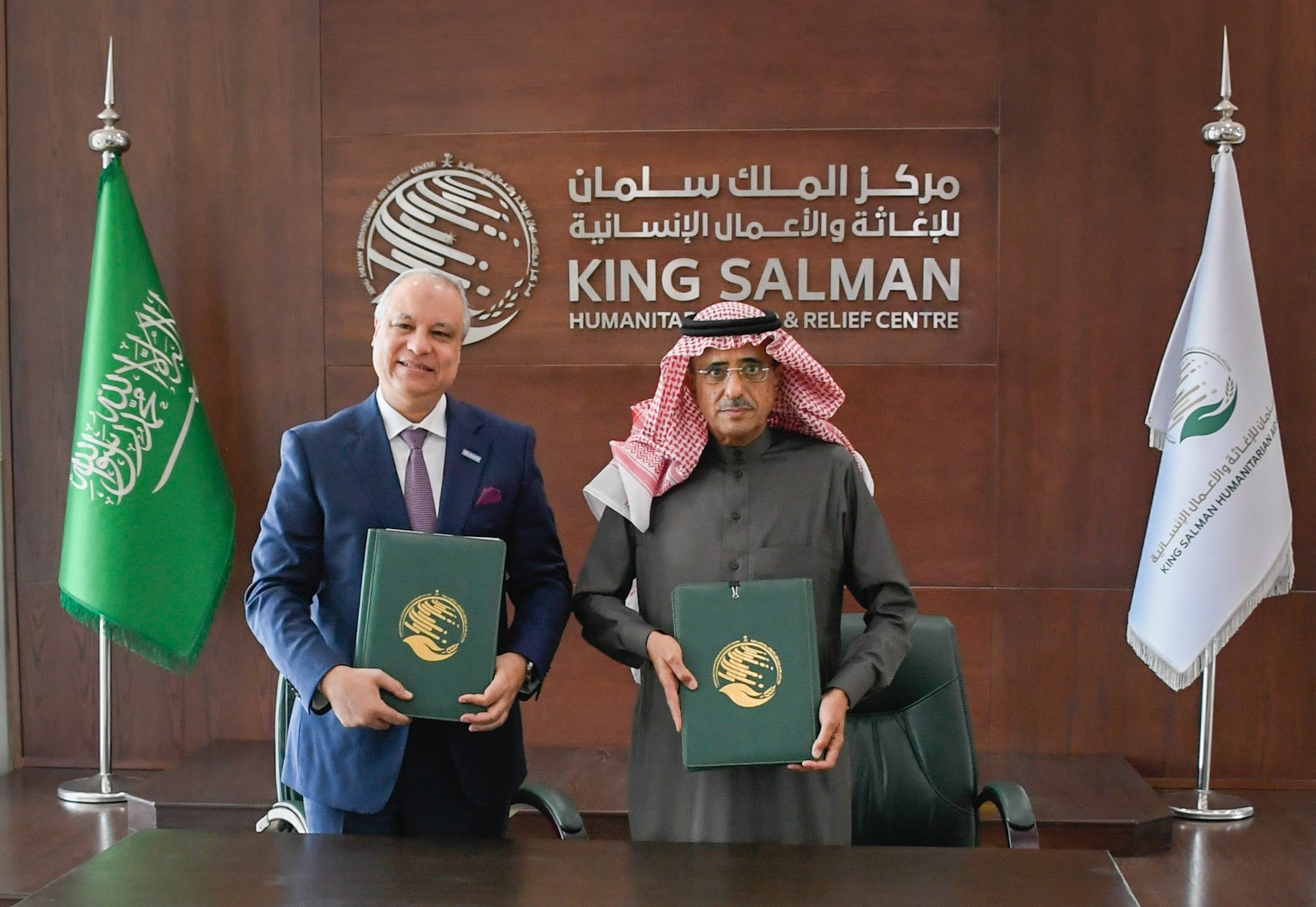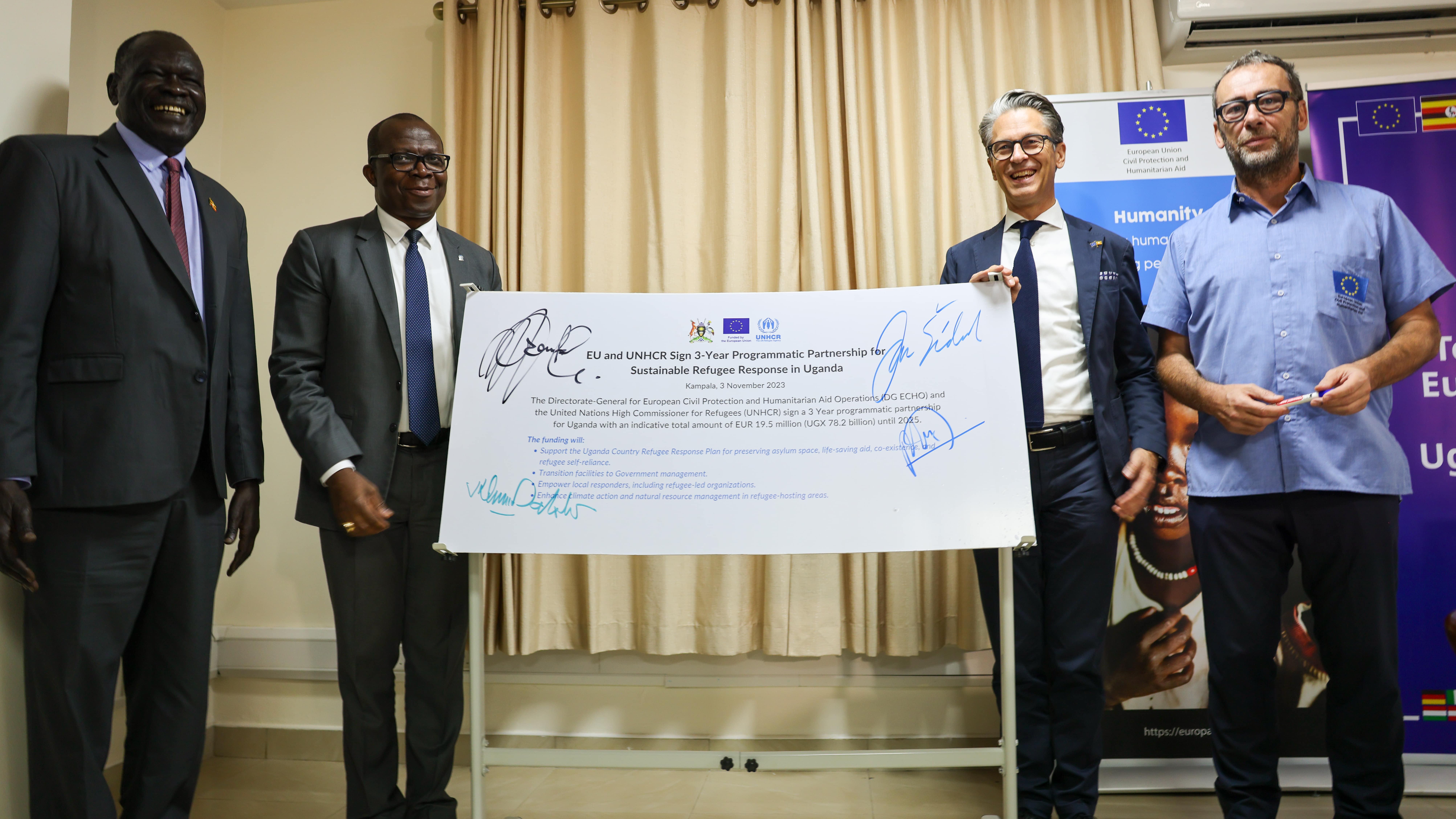President's visit lights up the hearts of refugees in Uganda
President's visit lights up the hearts of refugees in Uganda

The gesture by the leaders of Moyo District in northern Uganda to invite refugees from Palorinya Settlement to participate in welcoming the President of Uganda to Moyo created great excitement.
South Sudanese refugees, Christine 11 and Saviour, 10, represented the refugee community and performed their role with pride. They waited patiently and braved the hot sun as they watched cultural performances and listened to speeches from the dignitaries.
When their turn finally came, the youngsters strode confidently towards President Yoweri Museveni, holding an elegant walking stick in their hands. Carved out of a hardwood called poboo in the Acholi language spoken in Uganda and South Sudan, the stick had sections painted in black, yellow and red - the colors of Uganda.
“The President told us to greet you!”
Returning to the settlement that evening, they found their families in a celebratory mood at home.
“The President told us to greet you!” they cried excitedly as they rushed to greet their mothers.
“We introduced ourselves to the President and told him that we come from Kajo Keji in South Sudan and that we go to school in Palorinya refugee settlement,” they recalled.
Precocious Christine was clearly inspired by the President’s speech. She recounted elements of the speech to her parents. His message on the importance of peace had resonated with the young child who fled to Uganda with her family at only nine. She had listened intently and memorized the Madi word,vukotura, which the President used to explain how communities prosper through development.
“The President spoke about his plans to build roads and cotton factories,” added Christine “He also spoke of the importance of education, remembering when there were no secondary schools in the West Nile region.”
She remembered how he guided that families should stay together to grow their wealth and cautioned against subdividing land into small plots.
Saviour mostly remembered the drone that hovered above taking pictures.
“I kept thinking, when will I shake the hand of the President?” he said shyly.
“I want to be a president when I grow up.”
Like Christine, he too was inspired by the President.
“I want to be a president when I grow up,” he said.
Christine’s parents, Salva and Betty and Saviour’s mother Lilian, a widow, foster nine children who were separated from their families, orphaned or abandoned as is common in Palorinya. As parents and caregivers face physical, emotional, social and financial difficulties, many children are abused, neglected and often abandoned. Foster families like Christine’s and Saviour’s provide a precious safety net for such children.
The members of the refugee tailoring group that was selected to make white clothes for Christine and Saviour to wear to the event, broke into song and ululated when they saw the photograph of the children with the President.
Theirs is a special self-help initiative bringing members together to heal trauma. In testimony after testimony, adults and children shared how they battled thoughts of suicide, overcome by despair brought on by tragic losses they had endured. They gave accounts of husbands shot dead in their presence, loved ones murdered or never seen again, and spouses dying or disappearing, leaving them bereft.
Evans Pere Amos, a refugee who is trained in psychosocial counselling established the trauma healing and tailoring centre in a makeshift bamboo structure. Stephen Loke, also a refugee, teaches the members to design, cut and sew clothes at no cost. Other refugees offer basic literacy and numeracy skills to enable the members to record clients’ names and measurements. They initially sewed and repaired garments by hand, until a well-wisher donated a few sewing machines.
“The President’s acceptance of the walking stick has confirmed my artistic talent.”
66-year-old Mzee Nyeko mentors a similar group of youth to produce art, crafts and furniture for sale in local markets. He designed the gift that was handed to the President.
“The President’s acceptance of the walking stick has confirmed my artistic talent,” he said, beaming with pride at the photograph of the President.
The youth he mentors were equally elated. Among them are reformed alcohol abusers struggling against temptations towards self-destructive behavior.
With a population of 120,000, Palorinya, which was established in December 2016, hosts the second highest number of refugees in Uganda. Over 70,000 refugees are minors and nearly 30,000 are youth. A leg-up is often what is most needed to replace the trauma that many refugees suffer from with a sense of dignity and optimism.









